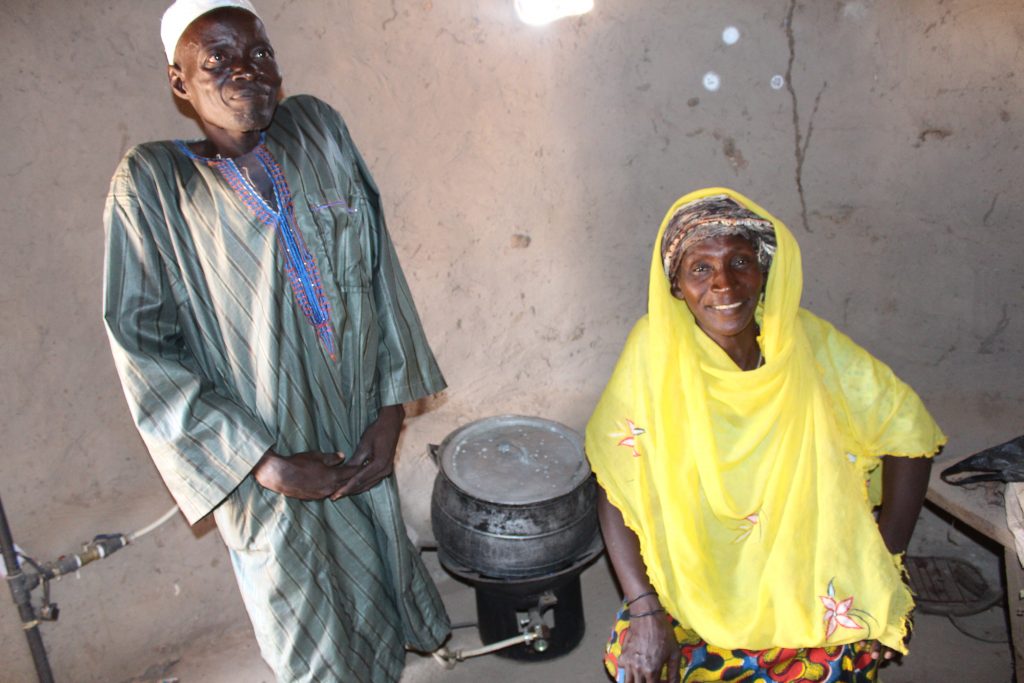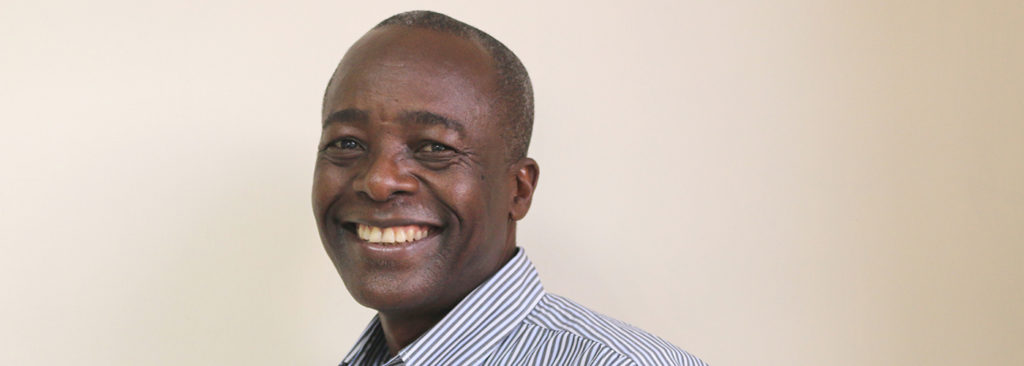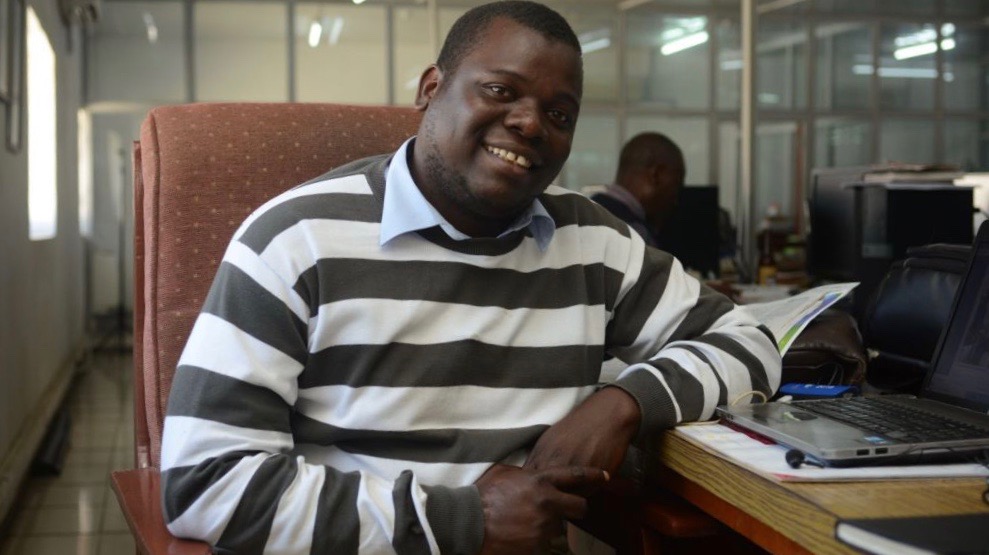Hivos East Africa’s Renewable Energy Program manager, Jean Marc Sika, was recently awarded the title of Monsieur le Grand Chancelier des Ordres burkinabè for his exceptional role in upscaling biogas and bio-digester technology in Burkina Faso. Hailed as one of the founding fathers of biogas in Burkina Faso, Jean Marc has shown astounding leadership, particularly in his role as a linking agent with the private sector and government.
Sally Akinyi of Hivos East Africa sat down with him to get a glimpse of the biogas revolution in Africa.

SA: Who is Jean Marc Sika?
JMS: Born in Cameroon 58 years ago, I am an economist by training and worked in a bank before I joined the development sector. I am also married with two children.
SA: What are you passionate about?
JMS: Propelling social justice to improve the human condition is what drives me. I cannot stand the fact that injustice and inequity prevent millions of people from seizing the opportunities that exist to improve their living conditions. I have witnessed marginalized groups such as women and sexual minorities face the worst kind of stigma and discrimination, so I strive to help create a better world for them.
SA: Tell us about your position at Hivos?
JMS: I joined Hivos in June 2009 as the fund manager of the Africa Biogas Partnership Program (ABPP). In 2015, I took on the responsibility of heading the renewable energy portfolio at Hivos East Africa. Just like any other position, it came with its own challenges and constantly pushes my limits and those of my team. My leadership style is rooted in mentoring. I strive to ensure that our solutions are able to drive societal change, particularly empowering communities to take charge of their energy systems.
SA: What inspires you in your current position?
JMS: Two things inspire me. First, the ‘little miracles’ I see in the eyes and gestures of the women and men I meet during field visits. Unlike other development interventions, renewable energy brings an immediate change inside people’s homes. These changes are visible, and further transformations outside the home are usually just around the corner.
Secondly, the ingenuity and creativity of women and men I’ve met everywhere in Africa is inspiring. As soon as they acquire a bio-digester, the number of amazing initiatives they undertake to permanently improve their daily lives is simply extraordinary – and fascinating.
SA: Tell us about the Africa Biogas Partnership Programme and what inspired its formation?
JMS: The idea behind the creation of ABPP emerged from the successful domestic biogas interventions of the Netherlands Ministry of Foreign Affairs (DGIS department), in partnership with Hivos and SNV, in Asia (Nepal, Cambodia, Vietnam and Indonesia). As part of its strategic goal to enable 30 million people to access renewable energy, DGIS upscaled its intervention to Africa.
The goal of ABPP is to create a market-oriented biogas sector in Burkina Faso, Ethiopia, Kenya, Tanzania and Uganda. So far mare than 60,000 biogas plants have been built, providing a source of clean energy to over 500,000 people.
SA: You recently got recognition from the President of Burkina Faso for your role in upscaling the biogas market in Africa. Tell us more about this and your role in the expansion of biogas in West Africa.
JMS: There’s an African saying which states that a single hand cannot tie a bundle. A silent revolution is under way in West Africa in the field of clean cooking and soil restoration for agriculture. Its epicenter is Burkina Faso, which plays a leading role as a frontrunner in creating a coalition of the willing. This is the result of the partnership between ABPP and a visionary government that uses its public and private institutions to support the country’s rural populations who have borne the brunt of climate change.
The adoption of the program In Burkina Faso, with its multi-stakeholder approach and ambition to create a market based sector, has been a long and challenging process. We must therefore salute the important work of the whole program team who has never spared any effort to bring about what we now know is a true revolution.
SA: How do you see the role of Hivos in upscaling renewable energy?
JMS: Even though the renewable energy sector is backed by a strong political will in some countries, it is still highly complex and fragmented. Despite this, the sector offers many opportunities for effective interventions to a wide variety of actors.
Hivos has an obvious advantage over many other similar institutions active in this sector. Our strategic ambition to innovate for social change gives us an almost unique platform to try out groundbreaking and disruptive innovations to solve the challenges people face, and if they’re successful, bring them to scale.
This article was originally published on Hivos Eastafrica Click here to view the original article


